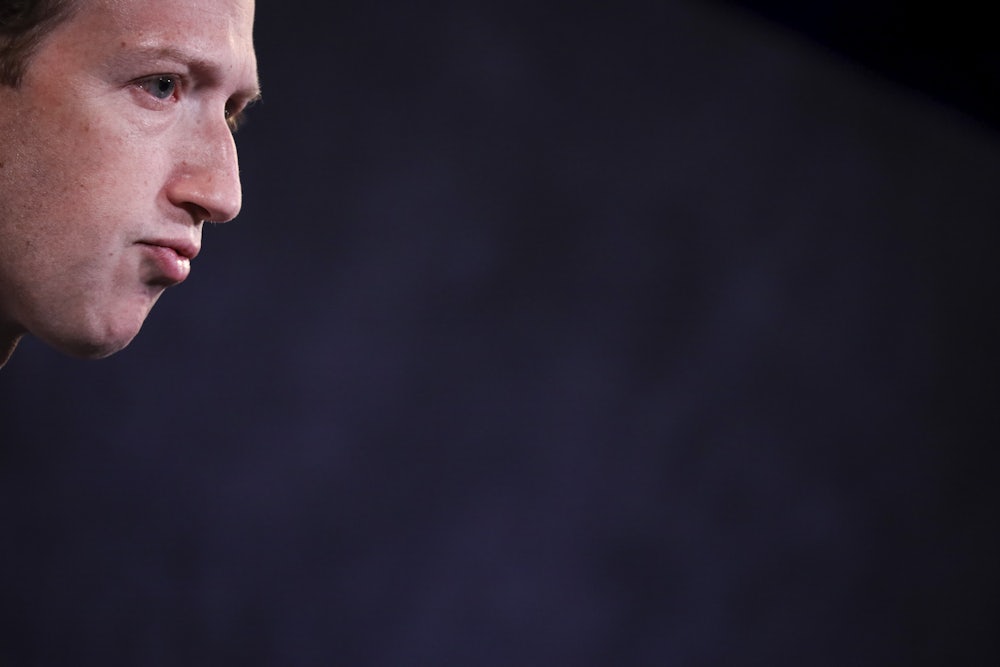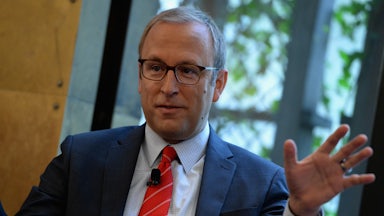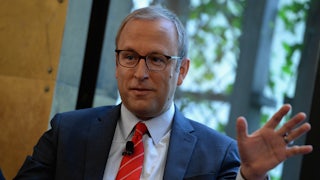Last week, Facebook went nuclear. As Australia considered legislation to force tech giants to compensate media outlets, the social media company cut off access to news for Australian users and globally banned sharing of Australian news sources. It was a unilateral act of info-suppression against 11 million Facebook users down under, and it had reverberating consequences well beyond journalism (health care facilities and emergency services found their pages disabled). As I wrote at the time, Facebook was behaving like the Mafia, acting vengefully toward an entire population over a proposed law that hadn’t even been enacted. The Australian government—which claimed to be acting to protect news organizations, whose content the tech companies monetize through ads—looked like the good guys, especially after receiving support from Microsoft and facilitating a deal with Google.
A week later, an all-out war has been averted, but there are no heroes to be found. Australia blinked first, altering the proposed legislation so that Facebook would lift its ban. Under the new deal, negotiated between Facebook CEO Mark Zuckerberg and Josh Frydenberg, Australia’s treasurer, the new legislation may not even apply to Facebook “if it can broker enough deals with publishers,” according to Axios. The about-face calls into question whether the Australian government has shown the world how to successfully bring Facebook to heel—or offered a grim exemplar of the company’s supra-national power. With multiple standoffs between big tech and government already underway or looming in the United States, the question is whether antitrust forces here will learn from Australia’s stumble, or be similarly bullied.
Facebook trumpeted the autonomy provided by its deal with Australia. “After further discussions with the Australian government, we have come to an agreement that will allow us to support the publishers we choose to, including small and local publishers,” said Campbell Brown, head of Facebook’s Global News Partnerships division, in a statement to CNET. That Facebook will now be allowed to pick and choose which publishers it supports augurs poorly for news organizations, large and (especially) small, that might report critically about the company.
Some critics, like the BBC’s Rory Cellan-Jones, have argued that it’s Facebook that lost: The “global backlash” at once affirmed Facebook’s power and the new wariness that governments feel toward it; the block itself seemed overly broad and hastily instituted; and it spurred other powerful tech companies, like Microsoft, to align themselves against Facebook—and on the side of the rule of law.
What we may very well see is Facebook, Google, Microsoft, et al forming more agreements with publishers around the world for linking to and otherwise borrowing from their material, thereby avoiding more political standoffs. Whether these negotiations will be anything close to fair—especially without government mediation—remains to be seen. In Australia, Facebook deployed its news ban in part because it refused to engage in forced arbitration with publishers. Small media outlets, especially, will find themselves disadvantaged when going up against Facebook, which has little to lose by bullying its way through negotiations. If a couple of independent Australian publishers are kicked off Facebook, few will care, and there will be little recourse.
This is all happening as we enter a fraught new era of legal battles between tech giants, governments, and media outlets resentful that their ad revenues and content have been cannibalized by a far more profitable industry. In the U.S., numerous states are considering new taxes to claw back money from companies that have made enormous revenues by monetizing personal data and attention. In cash-strapped Maryland, a new law on online advertising—designed to raise $250 million for education reforms—survived Governor Larry Hogan’s veto, but industry groups backed by Amazon, Facebook, and Google sued the state last week.
Meanwhile, the Biden administration has hired some tech veterans for Department of Justice positions, but it should be watching closely to see what happens in Australia. Other key hirings—like that of law professor Tim Wu, who according to recent news is “likely” to join the White House National Economic Council—show the new administration’s willingness to address issues of monopoly and consumer rights. Wu, a Columbia law professor and author who has held positions with the Federal Trade Commission and the New York attorney general’s office (and coined the phrase “net neutrality”), has written critically about the concentration of Big Tech’s market power.
Generally, we assume that companies must obey the law or risk facing steep consequences. But that’s a canard of democratic accountability belied by the fact that corporations routinely break the law and face minimal punishment, especially in the U.S. At worst, a big company and a government enforcement agency might come to a settlement that acknowledges no wrongdoing and includes a small fine. The power asymmetries are clear to see, which is why Facebook has so boldly taken advantage of them. In Australia, a powerful company mostly unconcerned by bad press can simply intimidate the government into bending the law—even a bill that hasn’t been passed!—to its will. It can do likewise to media companies: Note the massive dropoff in Facebook referral traffic to Australian news sources last week. Sure, there was public anger and finger-wagging, but a week later, Facebook got much of what it wanted.
What’s to stop Facebook from doing the same in America? That will be the big test for the Biden administration—not only whether it can launch antitrust actions or regulate tech giants, but whether it can subject those companies to the rule of law at all. The tech industry has spent hundreds of millions of dollars on political lobbying and established a potent Silicon Valley-to-D.C. pipeline of talent and influence. Big Tech has everything it needs: limitless cash reserves, well-connected lawyers, donations to friendly politicians, a claim on the public sphere, the ability to shape legislation before it even comes to a vote. Sure, Facebook and its brethren keep alienating the public and provoking its critics in government, but when you have as much power as Zuckerberg does, you can get away with it.








